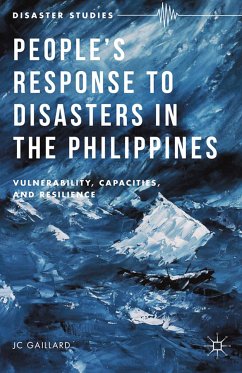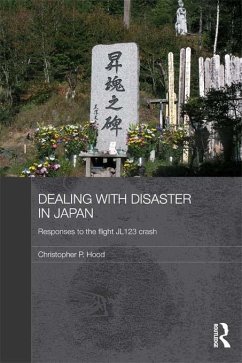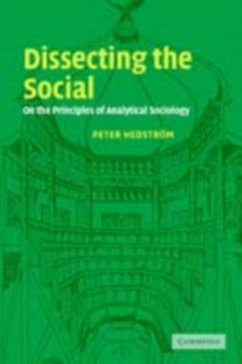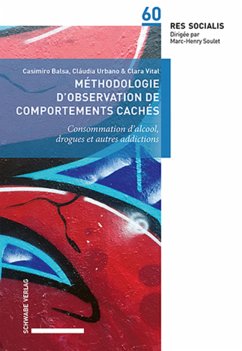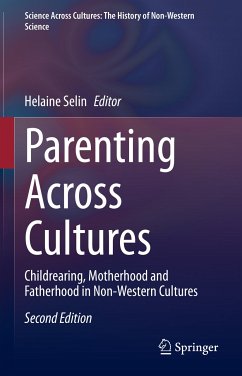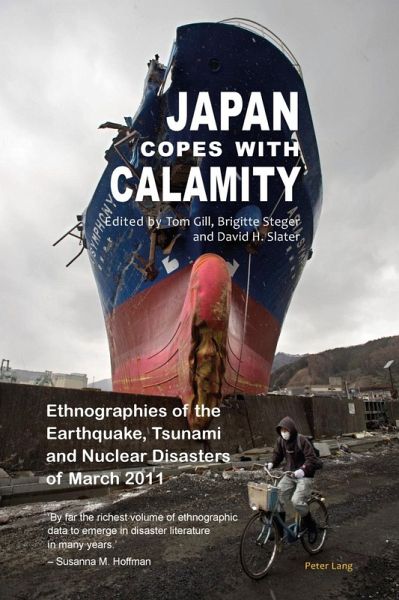
Japan Copes with Calamity (eBook, PDF)
Ethnographies of the Earthquake, Tsunami and Nuclear Disasters of March 2011
Redaktion: Gill, Tom
Versandkostenfrei!
Sofort per Download lieferbar
Statt: 71,90 €**
53,95 €
inkl. MwSt.
**Preis der gedruckten Ausgabe (Broschiertes Buch)
Alle Infos zum eBook verschenkenWeitere Ausgaben:

PAYBACK Punkte
27 °P sammeln!
This book is the first collection of ethnographies in English on the Japanese communities affected by the giant Tohoku earthquake and tsunami of 11 March 2011 and the ensuing crisis at the Fukushima nuclear power plant. It brings together studies by experienced researchers of Japan from field sites around the disaster zone. The contributors present the survivors' struggles in their own words: from enduring life in shelters and temporary housing, through re-creating the fishing industry, to rebuilding life-ways and relationships bruised by bereavement. They contrast the sudden brutal loss of li...
This book is the first collection of ethnographies in English on the Japanese communities affected by the giant Tohoku earthquake and tsunami of 11 March 2011 and the ensuing crisis at the Fukushima nuclear power plant. It brings together studies by experienced researchers of Japan from field sites around the disaster zone. The contributors present the survivors' struggles in their own words: from enduring life in shelters and temporary housing, through re-creating the fishing industry, to rebuilding life-ways and relationships bruised by bereavement. They contrast the sudden brutal loss of life from the tsunami with the protracted anxiety about exposure to radiation and study the battle to protect children, family and a way of life from the effects of destruction, displacement and discrimination. The local communities' encounters with volunteers and journalists who poured into Tohoku after the disaster and the campaign to win compensation from the state and nuclear industry are also explored. This volume offers insights into the social fabric of rural communities in north-eastern Japan and suggests how the human response to disaster may be improved in the future.
Dieser Download kann aus rechtlichen Gründen nur mit Rechnungsadresse in A, B, BG, CY, CZ, D, DK, EW, E, FIN, F, GR, HR, H, IRL, I, LT, L, LR, M, NL, PL, P, R, S, SLO, SK ausgeliefert werden.




